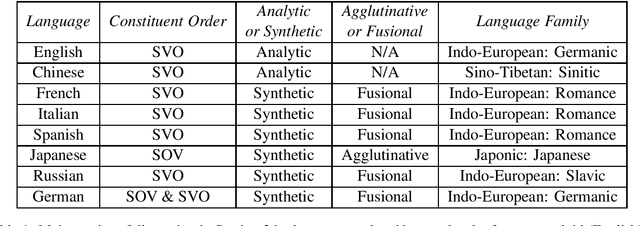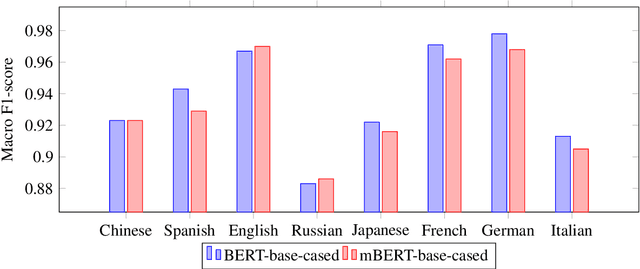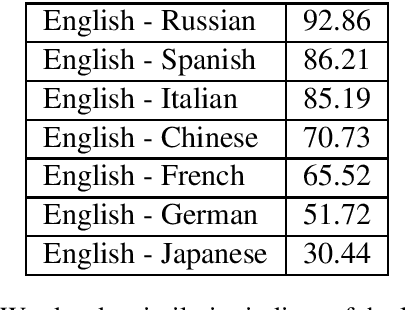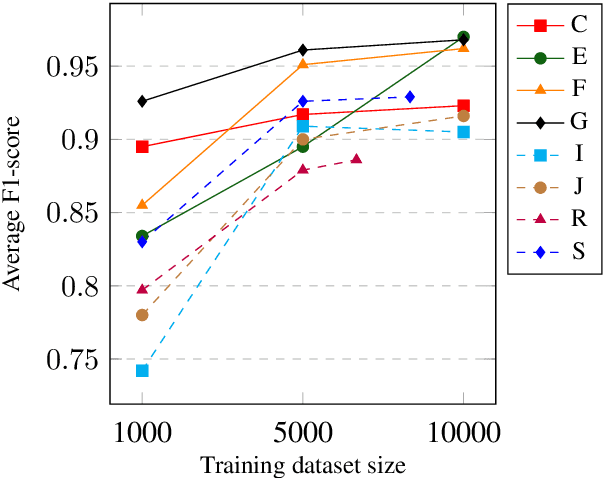Evaluating Transformer-Based Multilingual Text Classification
Paper and Code
Apr 30, 2020



As NLP tools become ubiquitous in today's technological landscape, they are increasingly applied to languages with a variety of typological structures. However, NLP research does not focus primarily on typological differences in its analysis of state-of-the-art language models. As a result, NLP tools perform unequally across languages with different syntactic and morphological structures. Through a detailed discussion of word order typology, morphological typology, and comparative linguistics, we identify which variables most affect language modeling efficacy; in addition, we calculate word order and morphological similarity indices to aid our empirical study. We then use this background to support our analysis of an experiment we conduct using multi-class text classification on eight languages and eight models.
 Add to Chrome
Add to Chrome Add to Firefox
Add to Firefox Add to Edge
Add to Edge